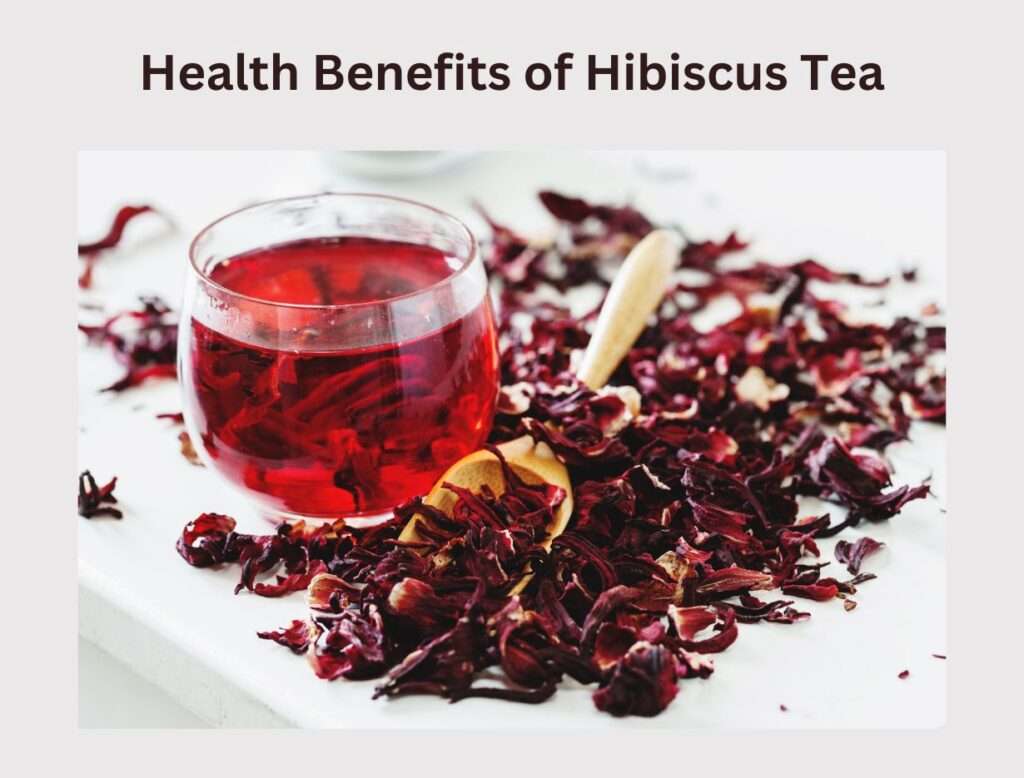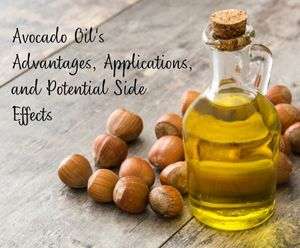The health benefits of hibiscus tea, also known as Agua De Jamaica, include relief from high blood pressure and high cholesterol, as well as a disrupted digestive and immune system, as well as inflammatory issues.
Hibiscus tea aids in the treatment of liver diseases and lowers the risk of cancer. It can also help with healthy, gradual weight loss by speeding up the metabolism. It is high in vitamin C, minerals, and antioxidants, and it can help with hypertension and anxiety.
Hibiscus Tea
Hibiscus tea is an infusion made from the sepals of the Hibiscus sabdariffa flower. It has a tart, cranberry-like flavour and is frequently sweetened with sugar or honey. Hibiscus tea is a popular beverage all over the world, and it is frequently used as a medicinal tea.
Hibiscus tea has a ruby-red colour and is also known as sour tea. It is widely available throughout the world and can be consumed hot or cold, depending on your preference. This tea is caffeine-free and low in calories.
Health Benefits of Hibiscus Tea
Let’s take a look at the nutritional information. Hibiscus tea is one of the healthiest drinks available because it is high in a variety of essential nutrients while being low in fats and carbohydrates. Hibiscus tea contains calcium and iron, as well as potassium and manganese. It has potent antioxidant properties that aid in the treatment of a variety of illnesses and diseases.
Hibiscus tea is widely available in supermarkets. We also discuss the negative health effects of hibiscus tea. This ayurvedic tea for diabetes helps with liver health, high blood pressure, irregular periods, skin infection, acne, and more. The best health benefits of drinking hibiscus tea are listed below.

Herbal teas that reduce cholesterol
Hibiscus tea protects blood vessels, lowers dangerous cholesterol levels in the body, and helps prevent heart disease. Hibiscus tea’s hypolipidemic and hypoglycemic properties may be beneficial to those with blood sugar issues such as diabetes.
Detoxifying enzymes in hibiscus tea safeguard the liver.
According to research, hibiscus tea’s antioxidant qualities may potentially be useful in treating liver conditions. Due to its ability to combat free radicals found in biological tissues and cells, antioxidants aid in defending your body against disease. Thus, consuming hibiscus tea on a regular basis can enhance general health and lengthen lifetime.
Hibiscus Tea’s anti-cancer properties
Protocatechuic acid from hibiscus, which possesses anti-tumor and antioxidant properties, is found in hibiscus tea. Daily hibiscus tea consumption causes apoptosis, or “programmed cell death,” which inhibits the formation of malignant cells.
Hibiscus Tea’s antibacterial and anti-inflammatory properties
Vitamin C, or ascorbic acid, is abundant in hibiscus tea. It is a crucial nutrient that the body needs in order to strengthen and enhance the immune system’s functioning. The antibacterial and anti-inflammatory qualities of hibiscus tea are widely established. As a result, it helps you from getting the flu and a cold. Due to its cooling effect, it is also used to relieve discomfort brought on by fever.
Gets Menstrual Cramps Under Control
The hibiscus tea’s health advantages also include the reduction of cramps and menstrual pain. Additionally, it aids in reestablishing hormonal equilibrium, which might lessen menstrual symptoms like mood swings, melancholy, and overeating.
Hibiscus Tea Has Antidepressant Effects
Flavonoids, which are vitamins and minerals with antidepressant qualities, are present in hibiscus tea. Hibiscus tea consumption can assist in calming the nervous system and may lessen anxiety and depression by promoting a relaxed state of mind and body.
Hibiscus Tea is Beneficial to the Digestive System
Tea made from hibiscus flowers has long been used to help with digestion. It regulates bowel and urine patterns. Due to its diuretic characteristics, it is also used to treat constipation, aiding in weight loss, gastrointestinal system health, and preventing colorectal cancer.
Benefits of Hibiscus Tea for Weight Loss
Hibiscus tea has been utilised for weight loss purposes over the years. Consuming foods high in carbs, which also contain sugar and starch, increases your risk of gaining weight. Hibiscus is useful in this situation.
Drinking hibiscus tea prevents the absorption from happening because hibiscus extract lowers the absorption of starch and glucose and inhibits the synthesis of amylase, which is necessary for the absorption of carbohydrates and starch. As a result, hibiscus tea is a common ingredient in weight loss solutions.
How to Use Hibiscus Tea
Hibiscus is a large genus of flowering plants that thrives primarily in tropical and subtropical climates. Its flowers are used to make jams and jellies as well as for a variety of medicinal and edible products, including lowering blood pressure, promoting weight loss, lowering cholesterol, and, in some cases, treating cancer.
Hibiscus tea’s anti-inflammatory qualities, which dramatically lower blood pressure with daily ingestion, have been shown to help hypertensive adults regulate their blood pressure.
Hibiscus Tea Side Effects and Allergies
Although hibiscus tea has many health benefits, it also has some drawbacks. Consuming hibiscus tea can cause faintness, dizziness, and damage to the heart and brain in people who already have low blood pressure or hypotension.
Hibiscus tea is not recommended for pregnant women, owing to its emmenagogue effects, which may stimulate menstruation or blood flow in the uterus or pelvic region. In addition, hibiscus tea may cause allergies such as itchy red eyes, sinusitis, or hay fever in some people.
Hibiscus Tea Agriculture
Hibiscus tea is a popular caffeine-free herbal tea made from the sepals of the Hibiscus Sabdariffa plant (also known as the “Roselle” plant). As a result, this beverage is also known as Roselle tea. Hibiscus tea has a long history of use in a variety of countries and cultures, particularly in hot, tropical areas like the Middle East and Central America, where the Roselle plant grows easily.
Hibiscus tea was clearly the beverage of choice for the Pharaohs of the ancient Nile Valley when they needed to cool off in the desert heat. The benefits of hibiscus tea gradually spread to the New World, and later, all over the world.
The low-maintenance hibiscus plant can be cultivated in open fields, greenhouses, containers, and pots. Hibiscus plants require plenty of sunshine and rainfall to produce blossoms of the highest quality. Sandy, loamy soils that are high in organic matter are preferred by hibiscus plants.
Frequently Asked Questions
Q1: What are the health advantages of drinking hibiscus tea?
A1: Hibiscus tea may have several health benefits. It is high in antioxidants like flavonoids and anthocyanins, which help protect the body from free radical damage. According to some studies, hibiscus tea may help lower blood pressure and cholesterol levels. It may also have anti-inflammatory properties and help with weight loss. Furthermore, hibiscus tea has antibacterial and antiviral properties that can help with immune health.
Q2: What are the most common uses for hibiscus tea?
A2: Hibiscus tea is commonly consumed as a refreshing beverage, both hot and cold. It has a tart taste and a bright red colour. Hibiscus tea is a traditional remedy for digestive issues such as indigestion and constipation in many cultures. It is also commonly used as a natural diuretic to aid in water retention. Furthermore, hibiscus tea is used as a base for herbal tea blends and can be added for a unique twist to cocktails, smoothies, and other recipes.
Q3: Does hibiscus tea have any potential side effects?
A3: While most people consider hibiscus tea to be safe when consumed in moderation, there are a few potential side effects to be aware of. Some people may experience stomach upset or mild digestive discomfort after drinking hibiscus tea. Furthermore, hibiscus tea has been shown to have a slight blood-thinning effect, so people who take anticoagulant medications should exercise caution and consult with a doctor before consuming large amounts of hibiscus tea. It’s also worth noting that excessive hibiscus tea consumption has been linked to liver damage in rare cases, so drink it in moderation.
Q4: Can hibiscus tea help you lose weight?
A4: Hibiscus tea may help with weight loss when combined with a healthy lifestyle. It has diuretic properties that can aid in water weight loss, and it may also aid in metabolism and fat oxidation. It is important to note, however, that hibiscus tea is not a weight-loss panacea. To achieve long-term weight management, it should be combined with a well-balanced diet, regular exercise, and overall healthy habits.
Q5: Is it safe to drink hibiscus tea while pregnant?
A5: Pregnant women should drink hibiscus tea with caution. According to some studies, consuming large amounts of hibiscus tea may have negative effects on pregnancy, including the potential to stimulate uterine contractions. Pregnant women should consult with their healthcare provider before incorporating hibiscus tea into their diet to ensure that it is safe for their specific circumstances.
Q6: Can hibiscus tea lower blood pressure?
A6: Hibiscus tea has been shown to have blood pressure-lowering properties. Several studies have found that drinking hibiscus tea on a regular basis can help lower both systolic and diastolic blood pressure. The presence of bioactive compounds in hibiscus tea acts as a natural angiotensin-converting enzyme (ACE) inhibitor, which can relax blood vessels and promote healthy blood flow.
Q7: Does hibiscus tea have any drug interactions?
A7: Hibiscus tea may interact with certain medications, so if you are taking any medications or have any underlying health conditions, you should consult with a healthcare professional. It may interact with blood pressure medications, anticoagulants, and diabetes medications, potentially enhancing their effects. It



